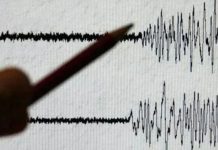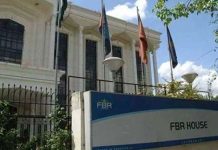ANKARA: Turkey and Greece have opened their first direct talks over their explosive eastern Mediterranean standoff in four years.
The talks in Istanbul on Monday, led by retired Greek diplomat Pavlos Apostolidis and Turkish Deputy Foreign Minister Sedat Onal, are not expected to make substantive progress but could help ease tensions between the two NATO neighbours after their gunboats collided in August as their dispute over energy and borders threatened to spiral out of control.
But the meeting adds to the positive tone Turkish President Recep Tayyip Erdogan has been setting as he tries to repair relations with Europe.
And it could lay the groundwork for the eventual delineation of one of the world’s most recently discovered regions of proven natural gas reserves.
Turkey’s Defence Minister Hulusi Akar on Saturday expressed hope that lawful solutions to bilateral issues will be found during talks with Greece starting in Istanbul on Monday.
“In talks with Greece, we hope that issues will be dealt with within the framework of rights, law, and equity, and that solutions are found,” National Defence Minister Akar said at launch and welding ceremonies for new Turkish-built ships.
Akar further underlined Turkey’s expectation that Greece “respect [Turkey’s] rights in the Aegean and eastern Mediterranean and avoids actions that may cause misunderstandings.”
Greek Prime Minister Kyriakos Mitsotakis said Athens was entering the so-called exploratory talks “with optimism and hope” – a comment echoed by Turkish Foreign Minister Mevlut Cavusoglu.
Ankara and Athens held 60 rounds of talks between 2002 and 2016 that they broke off without making progress in a dispute that has lingered for much of the past century.
Hostilities flared anew last year when Ankara sent a research ship accompanied by a navy flotilla into waters near the Turkish shore which Greece claims with EU support.
Ankara last year sent several drillships to explore for energy in the eastern Mediterranean, asserting its rights in the region, as well as those of the Turkish Republic of Northern Cyprus (TRNC).
Turkey is furious that Greece is using its vast web of islands to lay claim to huge swathes of the Aegean and Mediterranean Seas.
Turkey, which has the longest continental coastline in the eastern Mediterranean, has rejected maritime boundary claims by Greece and the Greek Cypriot administration, stressing that their excessive claims violate the sovereign rights of Turkey and the Turkish Cypriots.
The two sides cite a range of decades-old treaties and international agreements to support their conflicting claims.
NATO has set up a hotline to stave off a military conflict, while Germany has spearheaded efforts to solve the dispute through negotiations.
These will not be easy as Ankara and Athens clashed over their agenda last week.
Greece wants to limit the discussions between the two countries’ deputy foreign ministers to continental shelf borders and the size of exclusive economic zones.
But Ankara also accuses Athens of illegally stationing troops on some of its islands and wants to discuss aerial zones – a separate dispute that saw a Greek pilot killed when his jet collided with a Turkish one in 2006.
“It’s not right to choose one (subject) and say, ‘we’re holding exploratory talks on this’,” Cavusoglu fumed last week.
Michael Tanchum of the University of Navarra and the Austrian Institute for European and Security Policy (AIES) said the process could be helped along if it involved a third party such as the US or Germany.
“The likely outcome of such adjudication would invalidate the use of some small Greek islands near Turkey’s mainland … while upholding the use of larger islands and more distant islands,” Tanchum said.
The talks come during a sudden spurt in diplomatic contacts aimed at thawing an ever deeper chill in relations that have frozen EU accession talks Turkey began in 2005.
Cavusoglu was in Brussels for meetings with top EU officials last week and Ankara hopes for a return visit at the end of February or early March.
But EU chief Ursula von der Leyen remarked in a pointed tweet after the meeting that while “dialogue is essential… we also expect credible gestures on the ground”.
France has led EU condemnation of Turkey’s military interventions in Syria and Libya as well as Erdogan’s support for Azerbaijan in the Nagorno-Karabakh war against Armenia last year.
The EU ultimately decided to draw up an expanded list of Turkish targets for sanctions last month.
But Cavusoglu denied the talks with Greece were linked to the risk of punitive measures from Brussels.
“We’re not a country that is scared of sanction threats,” he said. Turkish leaders have repeatedly stressed that Ankara is in favour of resolving outstanding problems in the region through international law, good neighbourly relations, dialogue, and negotiations.

















